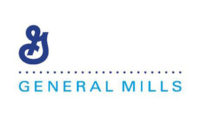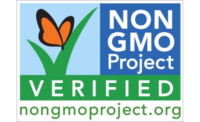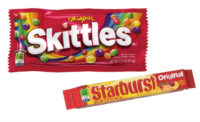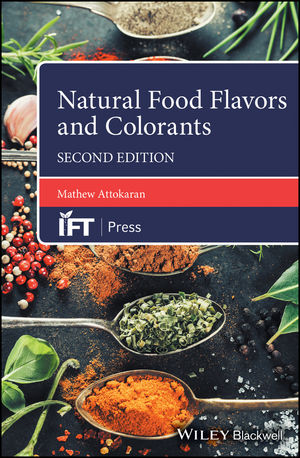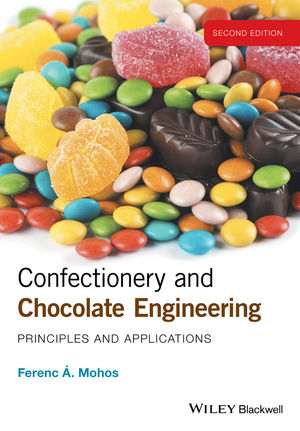General Mills has announced a commitment to sustainably source 100 percent of its 10 priority ingredients by 2020, including cocoa, sugar and other ingredients. 
The ingredients represent 50 percent of General Mills’ total raw material purchases and the commitment builds on the company’s sustainability mission to conserve and protect the resources upon which its business depends.
The commitment means General Mills has joined the growing list of companies making 2020 pledges. Hershey, Mars, Nestlé, Mondelez and Ferrero also have pledged to source all of their cocoa from certified sources by 2020.
The commitment, part of General Mills’ long-term sustainable sourcing strategy, covers a broad range of raw materials including oats, wheat, corn, dairy, fiber packaging, cocoa, vanilla, palm oil, sugar cane and sugar beets.
“Producing enough food to feed an increasingly hungry world will require not only innovation and dedication, but also careful attention to the impact of agriculture on our environment,” says Ken Powell, General Mills ceo.
Specific commitments by ingredient area includes:
|
1 |
Oats |
100 percent of the company’s oats will be sourced from growing regions that demonstrate continuous improvement against industry-based environmental metrics. |
|
2 |
Wheat |
100 percent of General Mills’ U.S. wheat will be sourced from growing regions that demonstrate continuous improvement against the Field-to-Market framework or comparable environmental metrics. |
|
3 |
Corn |
100 percent of the company’s dry milled corn will be sourced from growing regions that demonstrate continuous improvement against the Field-to-Market framework or comparable environmental metrics. |
|
4 |
Dairy |
100 percent of General Mills’ directly sourced fluid milk will originate from producing regions that demonstrate continuous improvement as measured by the Dairy Sustainability Framework (U.S.) or other comparable environmental metrics (globally). |
|
5 |
Fiber packing |
100 percent of the company’s fiber packaging will be from recycled material or from virgin wood fiber regions that are known TO NOT BE contributing to deforestation. Any high-risk regions will be independently verified. |
|
6 |
Cocoa |
100 percent of General Mills’ cocoa will be sourced through origin-direct investment, which will improve the incomes of smallholder farmers and the quality of ingredients |
|
7 |
Vanilla |
100 percent of the company’s vanilla will be sourced through origin direct investment, which will improve the incomes of smallholder farmers and the quality of ingredients. |
|
8 |
Palm oil |
100 percent of the company’s palm oil will be sourced from responsible and sustainable sources in 2015. |
|
9 |
Sugar (cane) |
100 percent of General Mills’ sugar cane will be sourced from responsible and sustainable sources. |
|
10 |
Sugar (beets) |
100 percent of the company’s U.S. beet sugar will be sourced from growing regions that demonstrate continuous improvement against the Field-To-Market framework or comparable environmental metrics. |
In addition to its sustainable commitment, General Mills will continue to support the humane treatment of animals in agriculture. The company will enforce its animal welfare policy, which covers pork, milk and egg production, antibiotic use and animal testing.
To achieve its 2020 goal, General Mills will continue to follow a four-step sustainable sourcing model – assessment, strategy formation, transformation and monitoring/evaluation.
-
Assessment: In 2011, General Mills worked with WWF to complete a comprehensive, supply risk analysis of all the agricultural raw materials the company buys worldwide. This assessment prioritized raw materials which were analyzed against dozens of potential risk categories such as human rights, deforestation, economic sustainability, fertilizer (nitrogen) use, GHG emissions, soil loss, water quality and water use. In addition, the company worked with the Rainforest Alliance to assess fiber sourcing.
-
Strategy Formation: General Mills identified the priority raw materials where it can have the greatest impact from a sourcing standpoint: wheat, oats, palm oil, vanilla, cocoa, corn, dairy, eggs, fiber packaging and sugar (sugar beets and sugar cane). The company will focus on developing strategies for sustainably sourcing these materials.
-
Transformation: Through its work with outside partners, General Mills leads and participates in pilot projects, sharing the results so others in the industry can continue to refine their approach. The company has taken the lead in pursuing sustainable solutions for wheat and oats.
-
Monitoring and Evaluation: General Mills’ efforts to monitor and evaluate its progress are ongoing. When necessary, the company involves third-party auditors to help measure and analyze its results
General Mills is one of the world’s leading food companies, operating in more than 100 countries around the world. Its brands include Cheerios, Fiber One, Häagen-Dazs, Nature Valley, Yoplait, Betty Crocker, Pillsbury, Green Giant, Old El Paso, Wanchai Ferry, Yoki, and more. Headquartered in Minneapolis, Minn., General Mills fiscal 2013 worldwide sales reached $17.8 billion.
► Related: Bloomer, Cargill talk about hitting the 2020 goal
► Related: How do we get enough certified cocoa by 2020? Change the definition of 'certified'





